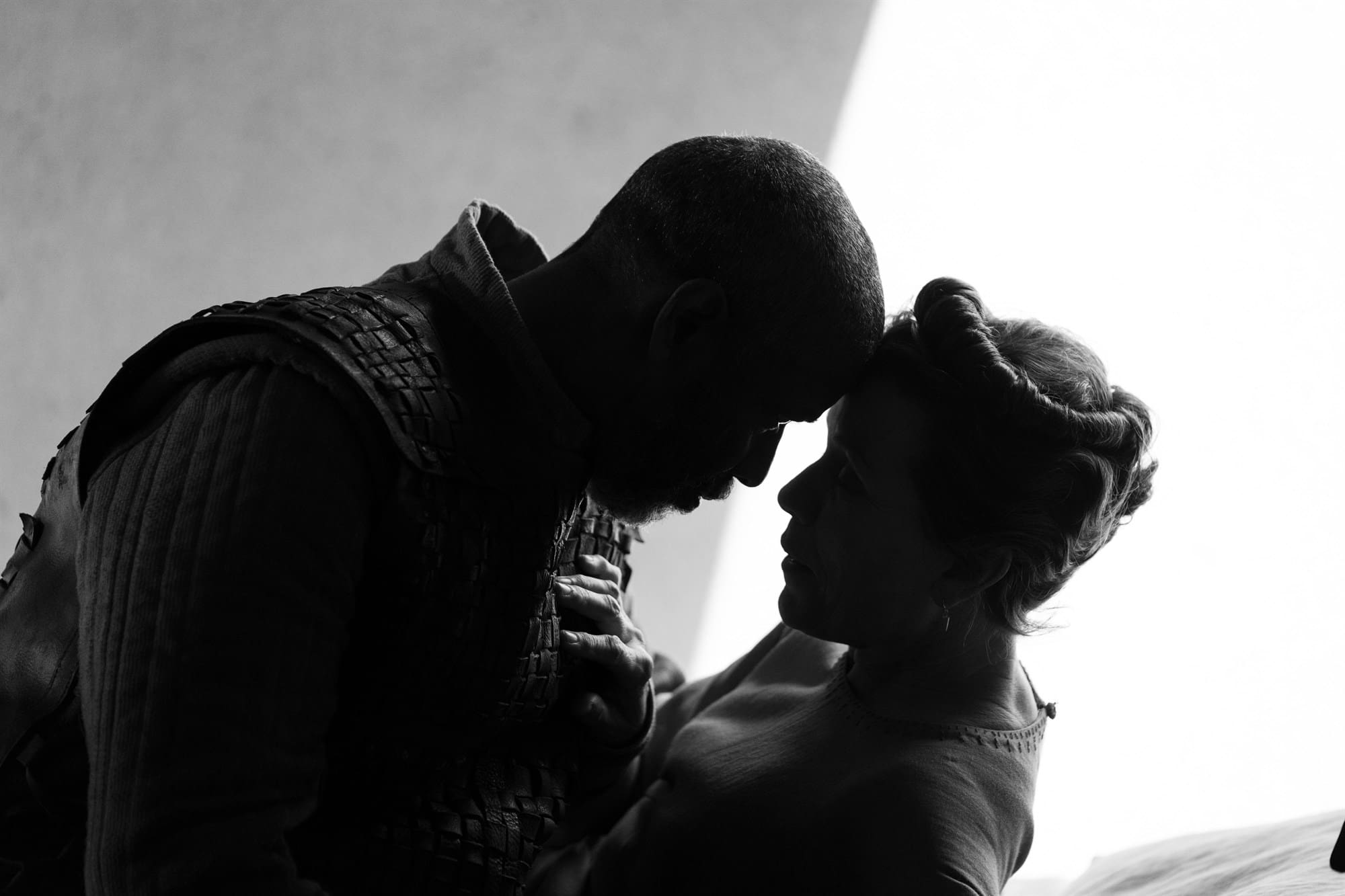
Although only one Coen Brother returns for The Tragedy of Macbeth, ad the film’s director and screenwriter, Joel does plenty fine on his own in creating a visually mesmerizing adaptation of the iconic Shakespeare play.
For the most part, Coen’s adaptation maintains the story and dialogue of Shakespeare’s tale of a Scottish lord named Macbeth (Denzel Washington) utilizing the advice of a trio witches (Kathryn Hunter) and the support of his ambitious wife (Frances McDormand) to fulfill his supposed destiny of becoming king. Even while the dialogue is mostly ripped right from the text, Coen’s direction creates a new vision of the storytelling. He keeps a show-don’t-tell mentality, sticking with pivotal moments in each scene rather than cutting away for an adjacent monologue like most other adaptations.
Thus, iconic scenes of Macbeth plunging his dagger into King Duncan’s (Brendan Gleeson) throat or Macbeth betraying Banquo (Bertie Carvel) leave a deeper impact. He also creates a more complex and dynamic role for Ross (Alex Hassell), placing him in a more central role in the narrative that carries hints of suspicious, dark villainy and a presence working behind the scenes. Coen also adds in some delightful dashes of dark comedy, perfectly fitting for a flick full of dramatic irony.
The Tragedy of Macbeth‘s unique elements go much further than slightly altering the text and some of the themes end up carrying a different meaning here simply because of the cast. Instead of Macbeth and Lady Macbeth being young and ambitious opportunists looking for a seat at the throne, Coen makes them two older conspirators who see their opportunity for power slipping away as they age. Their outbursts and conniving views at obtaining and maintaining power don’t come off as an “out with the old and in with the new” mentality, but as a last-ditch effort and there’s something incredibly powerful about that. In a press conference held after a New York Film Festival screening, McDormand mentioned a subtle change to one of her lines that replaced “We fail?” with “We fail!” and although it seems small out of context, the change really emphasizes the effectiveness of Coen’s interpretation of these characters.
His subtly nuanced take is definitely elevated by the incredible performances—especially from McDormand and Washington. McDormand gives a maturity to Lady Macbeth that makes her support in Macbeth’s path to the throne a little more human and genuine. Washington is the true standout, though, as his unflinching dominance and cunning depiction of Macbeth makes him THE definitive modern version. His line reading is the definition of epically swift and he truly immerses himself into the role to create this captivating performance. Admittedly, it is a little odd at first that they, along with other actors, don’t try to speak with Scottish or even English accents, but the choice also allows them to focus more on their line-delivery and the Shakespearean dialogue ends up keeping all the performances well-connected. Also, it’s worth giving some props to Corey Hawkins, Hassell, and Hunter in their respective roles because they absolutely kill it too.
The greatest strength in Coen’s The Tragedy of Macbeth is the visuals, which deliver perhaps the most beautiful Shakespeare adaptation yet and quite possibly the best-looking film of the year. Coen, cinematographer Bruno Delbonnel, and the set design come together to create this blend of stage and film visuals that are an absolute marvel. The great use of sharp shadows creates engaging environments, and the castle’s simple aesthetic gives off a super dark, horror-like atmosphere. The introduction for the trio of witches is especially horror-driven and perfectly kicks off the stunning visuals in breathtaking fashion. The choice for black and white cinematography pays off immensely as well, draining the color to let simpler aesthetics like the stars in the sky or the sharp lighting pop.
Coen establishes The Tragedy of Macbeth as the new standard for Shakespeare adaptations, with the kind of performances, nuanced storytelling and eye-widening visuals that make it a pure, can’t-miss cinematic experience.

